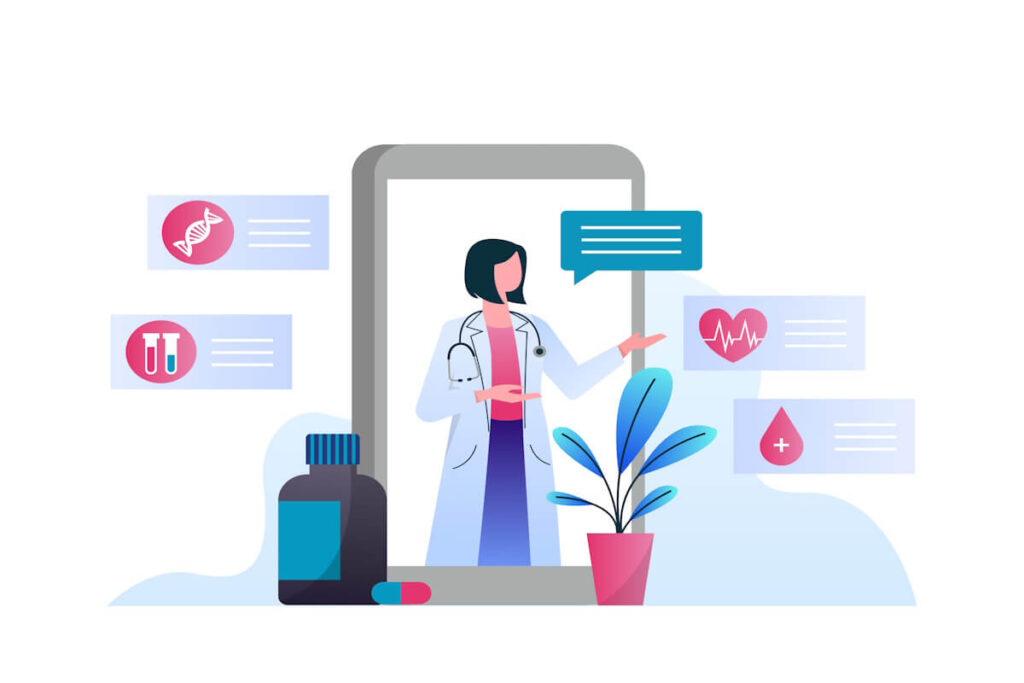In today’s digital age, mobile apps have become an integral part of our daily lives. From shopping and socializing to managing our health, there seems to be an app for everything. One area where mobile apps have the potential to make a significant impact is in healthcare, specifically in improving patient engagement.
The Importance of Patient Engagement
Patient engagement is a crucial aspect of healthcare that refers to the involvement of patients in their own care. When patients are engaged in their health, they are more likely to adhere to treatment plans, make healthier lifestyle choices, and have better health outcomes overall. Engaged patients also tend to have lower healthcare costs and are more satisfied with their care.
However, patient engagement can be a challenging goal to achieve. Patients often struggle to stay informed about their health conditions, adhere to medication schedules, and communicate effectively with their healthcare providers. This is where mobile apps can play a vital role in improving patient engagement.
Benefits of Using Mobile Apps for Patient Engagement
Mobile apps offer a convenient and accessible way for patients to manage their health and stay connected with their healthcare providers. Here are some key benefits of leveraging mobile apps to improve patient engagement:
- Convenient Access to Health Information: With mobile apps, patients can access their health information, such as test results, medication lists, and appointment schedules, at their fingertips. This empowers patients to take control of their health and make informed decisions about their care.
- Medication Reminders: Mobile apps can send reminders to patients to take their medications on time. This helps improve medication adherence, which is essential for managing chronic conditions and preventing complications.
- Virtual Consultations: Some mobile apps offer telehealth services that allow patients to consult with healthcare providers remotely. This is especially beneficial for patients who have difficulty traveling to healthcare facilities or prefer the convenience of virtual visits.
Health Tracking
- Mobile apps can track various health metrics, such as blood pressure, blood sugar levels, and physical activity. Patients can monitor their progress over time and share this data with their healthcare providers to receive personalized recommendations.
- Educational Resources: Mobile apps can provide educational resources, such as articles, videos, and interactive tools, to help patients learn more about their health conditions and treatment options. This empowers patients to become more knowledgeable and engaged in their care.
Best Practices for Implementing Mobile Apps for Patient Engagement
While mobile apps have the potential to revolutionize patient engagement, it is essential to follow best practices to ensure their effective implementation. Here are some tips for healthcare providers looking to leverage mobile apps to improve patient engagement:
- Choose the Right App: Select a mobile app that meets the unique needs of your patient population and integrates seamlessly with your existing healthcare systems. Consider factors such as user-friendliness, security features, and interoperability with electronic health records.
- Educate Patients: Provide adequate training and support to help patients navigate the mobile app and maximize its benefits. Offer resources, such as user guides and tutorials, to ensure that patients feel comfortable using the app.
- Ensure Data Privacy: Protect patient privacy by implementing robust security measures, such as encryption and user authentication. Comply with regulations, such as HIPAA, to safeguard patient health information stored in the mobile app.
Monitor Usage and Outcomes
- Track key metrics, such as app usage rates and patient engagement levels, to assess the impact of the mobile app on patient outcomes. Use this data to make informed decisions and continuously improve the app.
- Encourage Feedback: Solicit feedback from patients to gather insights on their experience with the mobile app. Use this feedback to make enhancements and tailor the app to better meet the needs of patients.
In conclusion, mobile apps have the potential to revolutionize patient engagement by providing convenient access to health information, promoting medication adherence, facilitating virtual consultations, tracking health metrics, and offering educational resources. By following best practices for implementing mobile apps, healthcare providers can enhance patient engagement, improve health outcomes, and ultimately deliver more personalized and effective care.
Ready to leverage mobile apps to empower your patients and improve health outcomes? Contact us to discuss how we can help you implement a patient engagement app in your practice.
FAQs:
What is patient engagement and why is it important in healthcare?
Patient engagement refers to the involvement of patients in their own care, leading to better adherence to treatment plans, healthier lifestyle choices, and improved health outcomes. Engaged patients also tend to have lower healthcare costs and higher satisfaction with their care.
How can mobile apps improve patient engagement in healthcare?
Mobile apps provide convenient access to health information, offer medication reminders, enable virtual consultations with healthcare providers, and allow for tracking of various health metrics. These features empower patients to take control of their health and make informed decisions about their care.
What are some benefits of using mobile apps for patient engagement?
Mobile apps offer convenient access to health information, medication reminders for better adherence, virtual consultations for remote healthcare services, and health tracking capabilities for monitoring progress and receiving personalized recommendations from healthcare providers.
How can mobile apps help patients with chronic conditions manage their health better?
Mobile apps can provide patients with chronic conditions with tools for tracking their health metrics, receiving medication reminders, and accessing educational resources to better manage their condition. This can lead to improved adherence to treatment plans and overall better health outcomes.
